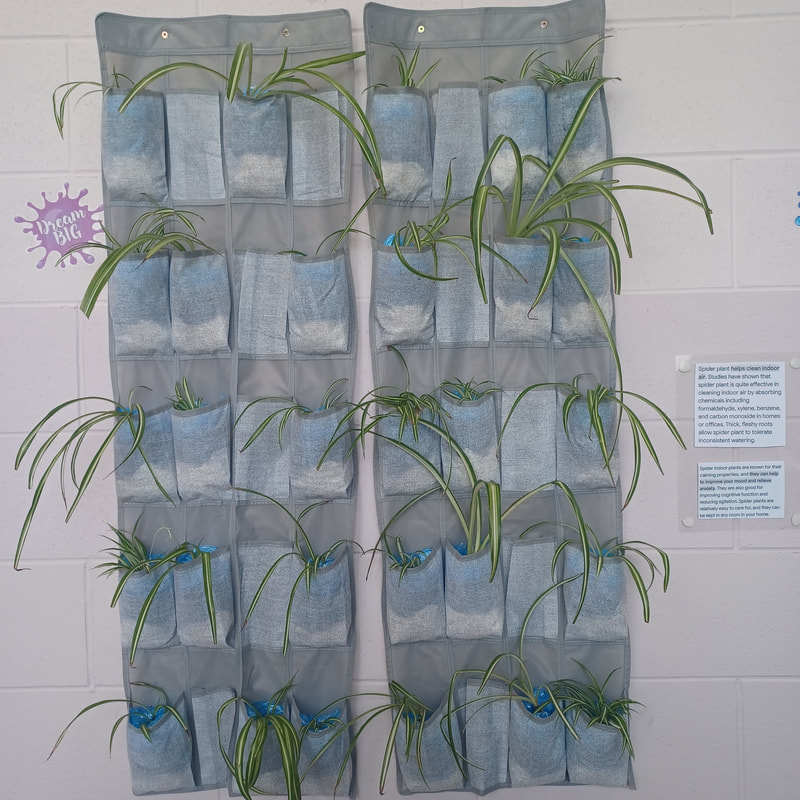Caring for the Environment
Investigating Renewable Energy
3rd and 4th Classes were lucky enough to take part in a workshop organised by IMAR in MTU teaching the children all about renewable energy. The children used kits to investigate both solar and wind energy to power the circuit boards. This was a very educational and hands on workshop where the children learned so much.
Solar energy in action. |
Wind energy in action. |
The Hanging Gardens of 4th Class
Thanks to 4th Class SNA for coming up with the great idea to make a hanging indoor spider plant display. As part of the greenschools idea of reusing objects, we came up with the idea of using shoe holders and inserted pots into each section. These Spider plants have many benefits and it is always fun to try create an indoor garden.
Benefits of Spider Plants.
|

















































